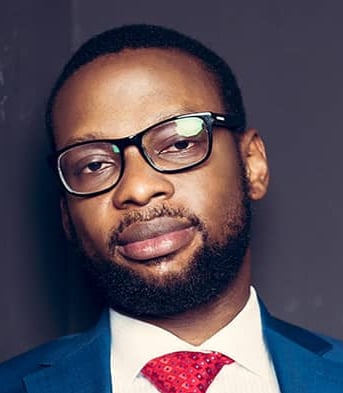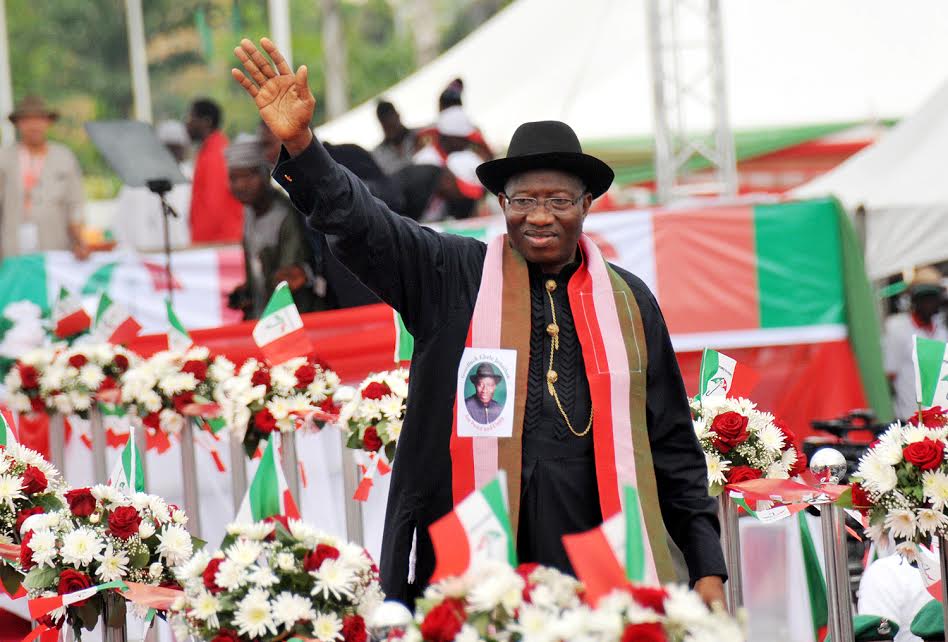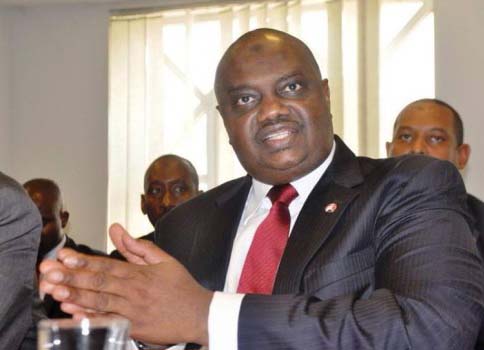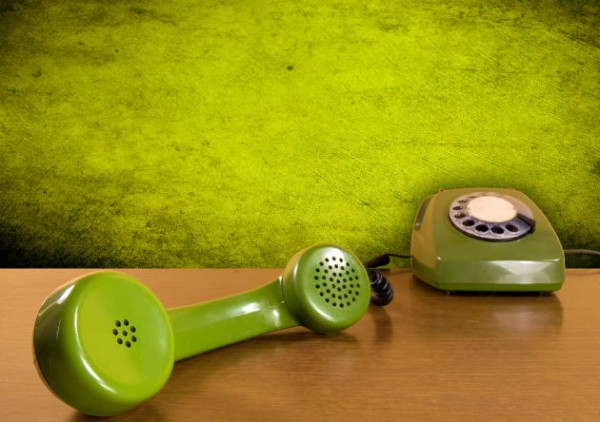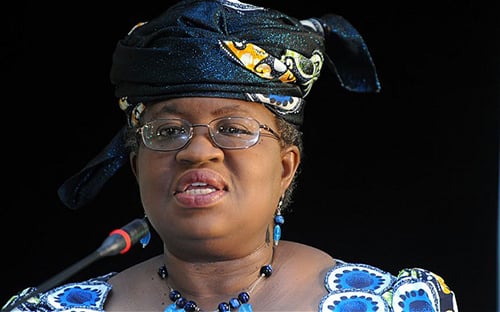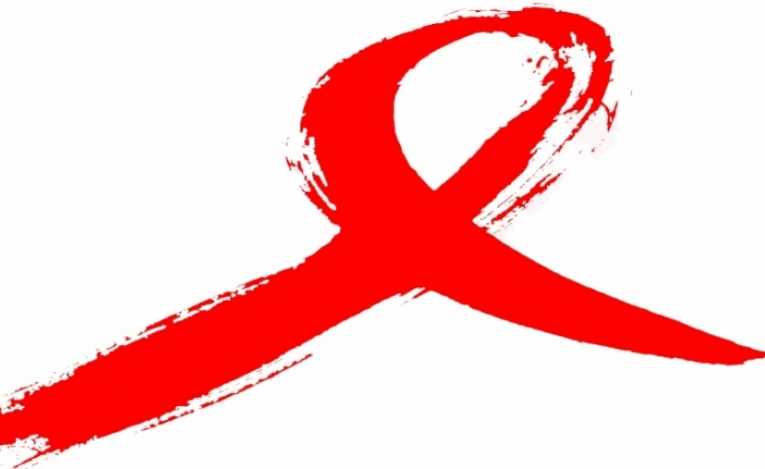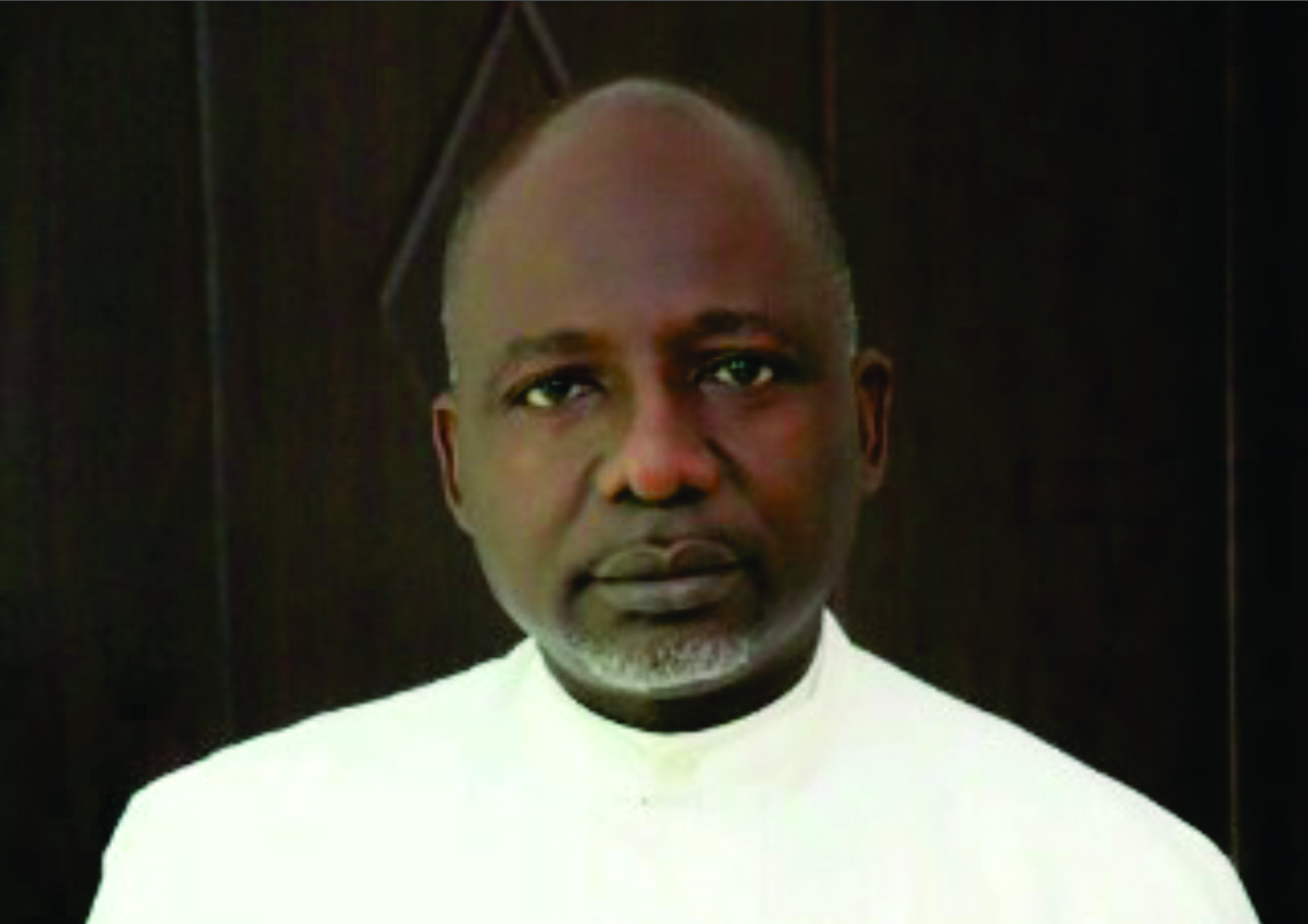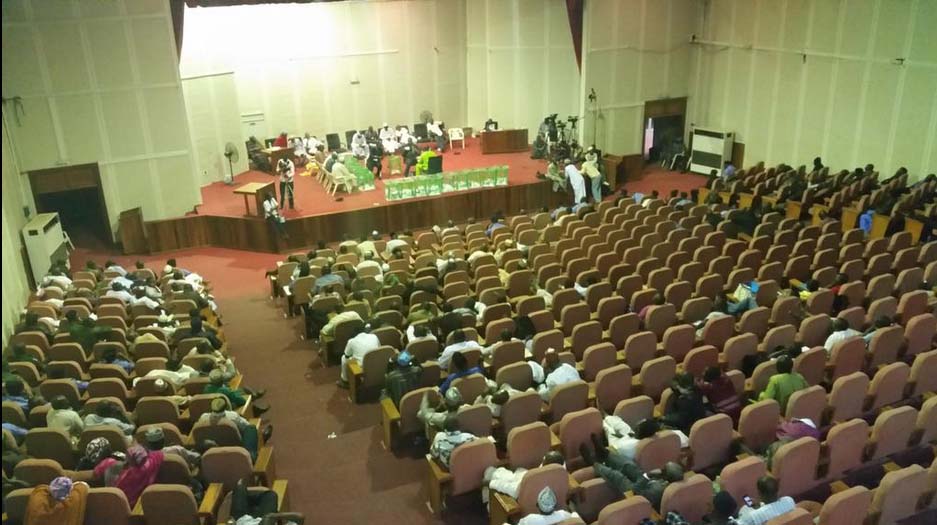Goodluck Jonathan is worried. As he sat down at the Eagle Square on November 11 to formally declare his intention to seek re-election, Jonathan cut a forlorn figure, which he attempted to mask with occasional smiles too artificial to be believable.
Jonathan’s staunchest governor-ally, Godswill Akpabio, spoke with confidence: “Mr President, we know that the route to 2015 is not going to be very smooth, but we are assuring you that at the end of the tunnel victory is yours,” he said.
He went on to compare the president to “David in the Bible […] fighting all the wars”.
Hearing Akpabio’s words, I was left a bit confused. Why is our president, close to completing four years in office, still a David? He has no victories against the Goliaths to offer at the end of his term? Why is he still struggling to earn public trust?
Advertisement
Four years earlier again at Eagle Square, Jonathan declared his candidacy for the 2011 presidential election, promising to “fight” eight specific battles.
He promised to fight for “justice, for all Nigerians to have access to power, for qualitative and competitive education, for healthcare reforms, to create jobs for all Nigerians; to fight corruption, fight to protect all citizens, and to fight for your rights!”
Eight struggles, four years, and no victory yet to declare?
Advertisement
A corrupt administration
It is unclear if Jonathan’s administration is the most corrupt in Nigeria’s democratic history, but never has corruption been this romanticised and institutionalised.
The Code of Conduct Bureau requires all public office holders to declare their assets on assumption and relinquishment of office. But this had no meaning for Jonathan.
Asked during a presidential media chat in June 2012 to explain his aversion to public compliance with the asset declaration code, Jonathan clarified that he didn’t give a damn.
Advertisement
“The issue of public asset declaration is a matter of personal principle,” he said. “That is the way I see it, and I don’t give a damn about it, even if you criticise me from heaven,” he said.
Two years later, he delivered another bombshell. Explaining at another presidential media chat in May 2014 on how his administration was tackling corruption, he said: “Over 70 percent of what are called corruption [cases], even by EFCC [Economic and Financial Crimes Commission] and other anti-corruption agencies, is not corruption, but common stealing.”
His disregard for one of his eight struggles – fighting corruption – was put not only into verbal use but also into action.
In 2013, his minister of aviation, Stella Oduah, faced accusations of ordering the purchase of two bulletproof cars for $1.6m – about $1.2m more than the market price. More than a year after the scandal, Oduah, who ordinarily ought to be prosecuted, is still prospering and in fact playing a big role in Jonathan’s 2015 campaign.
Advertisement
No one truly knows the exact amount of public funds Diepreye Alamieyeseigha, ex-governor of Jonathan’s Bayelsa state, stole. But he had stolen so much that when the federal government started an investigation in the mid-2000s, it was discovered that he had some $1.56m in cash stashed away in one of his London properties.
After investigations and lawsuits in the UK and Nigeria, Jonathan – only God knows what he was thinking – granted Alamieyeseigha a state pardon in March 2013. These are just two out of many such examples.
Advertisement
Litany of failed promises
All of Jonathan’s 2010 promises were rehashed into a document he christened “Transformation Agenda 2011-2015”, which set out to focus on job creation, education, health, power, transportation, Niger Delta development, governance and public expenditure management, among others.
Advertisement
Truly, Jonathan did attempt to create jobs through the YOUWIN initiative. But it counts for nothing knowing how the masses suffer from the partial removal of subsidy in January 2012, from which YOUWIN is funded.
During the Occupy Nigeria protests against subsidy removal, at least 17 people were killed by the police – people whose rights Jonathan promised to “fight for”. Till date, no police officials have been prosecuted for the deaths.
Advertisement
It is impossible to say a president has transformed his country’s health sector if his own wife receives medical attention abroad; or if after a prolonged strike by doctors, he ingeniously devises a backdoor approach to sacking them.
I do not blame Jonathan for the insurgency in the northeast, neither do I believe in the conspiracy theory that his government or its key officers are sponsoring Boko Haram. But he can’t be exonerated from responsibility for the organisational ill-preparedness of the military and the inferior firearms of soldiers, given the huge amount funds for the military at his disposal.
A Jonathan win in 2015 will invalidate his underwhelming first-term performance. His victory will be brought by a combination of deep-seated ethnic sentiments in his favour, blind public sycophancy and the possibility of opposition All Progressives Congress (APC) collapsing after its presidential primary.
To Jonathan’s advantage, APC has offered the public scant argumentation on why it should be voted into power. Journalist Frederick Nwabufo recently asked John Oyegun, APC’s supremo, what his party would do differently about Boko Haram should it gain power next year.
“We will make the system work,” he said. How? He didn’t say.
So it is clear that in 2015, Nigerians will be torn between the devil and the deep blue sea; between a Jonathan who promised but failed to transform Nigeria and an opposition whose chief selling point is directing tirades at the presidency. Surely, there couldn’t have been a worse time to be Nigerian.
EDITOR’S NOTE: This piece was originally published by Al Jazeera.
Add a comment
